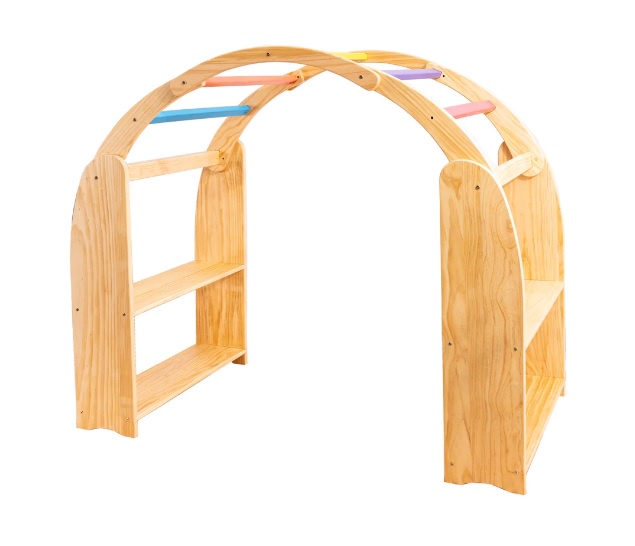As parents and caregivers, one of our most important responsibilities is to empower children to become independent, self-reliant individuals. The Montessori approach to education provides a time-tested framework for achieving this goal. Founded by Dr. Maria Montessori, this educational philosophy places a strong emphasis on fostering independence in children through purposeful activities and the use of Montessori tools. In this blog, we'll explore how you can apply Montessori principles at home to nurture independence in your children.
- Create an Environment of Freedom and Responsibility
One of the fundamental tenets of Montessori education is the concept of a prepared environment. This environment should be designed to encourage independence and allow children to explore and learn at their own pace. To implement this in your home, consider the following:
-
Child-Accessible Spaces: Organize your home so that essential items are easily accessible to your child. For example, place low shelves with books and toys within their reach, allowing them to make choices independently.
-
Child-Sized Furniture: Invest in child-sized tables, chairs, and utensils to promote self-sufficiency during meals and other daily activities.
-
Real-Life Tools: Provide your child with real-life tools they can use safely. Child-sized kitchen utensils, gardening tools, and cleaning supplies enable them to participate in practical activities and develop essential life skills.
- Encourage Self-Directed Learning
Montessori principles emphasize that children are naturally curious and motivated to learn. To harness this innate drive for independence, create an environment that supports self-directed learning:
-
Montessori Materials: Incorporate Montessori tools like sensorial materials, mathematical manipulatives, and language materials into your child's playtime. These materials are designed to be self-correcting, allowing children to identify and correct their mistakes independently.
-
Exploration and Experimentation: Encourage your child to explore and experiment with various activities and materials. Provide open-ended toys and art supplies that allow for creative expression and problem-solving.
-
Freedom of Choice: Let your child choose their activities and interests. This freedom helps them develop a sense of autonomy and responsibility for their learning journey.
- Teach Life Skills
Montessori education places a strong emphasis on practical life skills that empower children to take care of themselves and their environment. By introducing these skills early on, you can foster independence and self-sufficiency:
-
Dressing: Teach your child how to dress themselves, starting with simple tasks like putting on shoes and eventually progressing to more complex ones like buttoning shirts and tying shoelaces.
-
Meal Preparation: Involve your child in meal preparation tasks appropriate for their age, such as washing vegetables, spreading butter on bread, or setting the table. This instills a sense of responsibility and fosters independence.
-
Cleaning and Organization: Encourage your child to take an active role in keeping their space tidy. Provide child-sized brooms, dustpans, and bins for easy cleanup.
- Foster Independence in Problem-Solving
In the Montessori approach, children are encouraged to solve problems on their own and learn from their mistakes. This helps develop critical thinking skills and resilience. Here's how you can foster independence in problem-solving:
-
Avoid Over-Intervening: Resist the urge to step in immediately when your child faces a challenge. Allow them the time and space to attempt problem-solving independently.
-
Encourage Perseverance: Teach your child that making mistakes is a natural part of learning. Praise their efforts and determination rather than focusing solely on outcomes.
-
Offer Guidance: If your child seeks your help, provide guidance rather than solving the problem for them. Ask open-ended questions to help them think through the situation.
- Embrace the Montessori Philosophy
To fully embrace Montessori principles and the use of Montessori tools, consider exploring a Montessori shop. These specialized stores offer a wide range of materials, books, and resources that align with the Montessori approach to education. By incorporating these tools into your child's daily life, you can provide them with opportunities to explore and learn independently.
Conclusion
Fostering independence in children through Montessori principles is a rewarding journey that empowers them to become self-reliant, confident individuals. By creating an environment of freedom and responsibility, encouraging self-directed learning, teaching life skills, and fostering independence in problem-solving, you can help your child develop into a capable and resilient individual. To further support this approach, explore a Montessori shop for resources and materials that align with the Montessori philosophy, enriching your child's learning experience and journey toward independence.


No comments yet